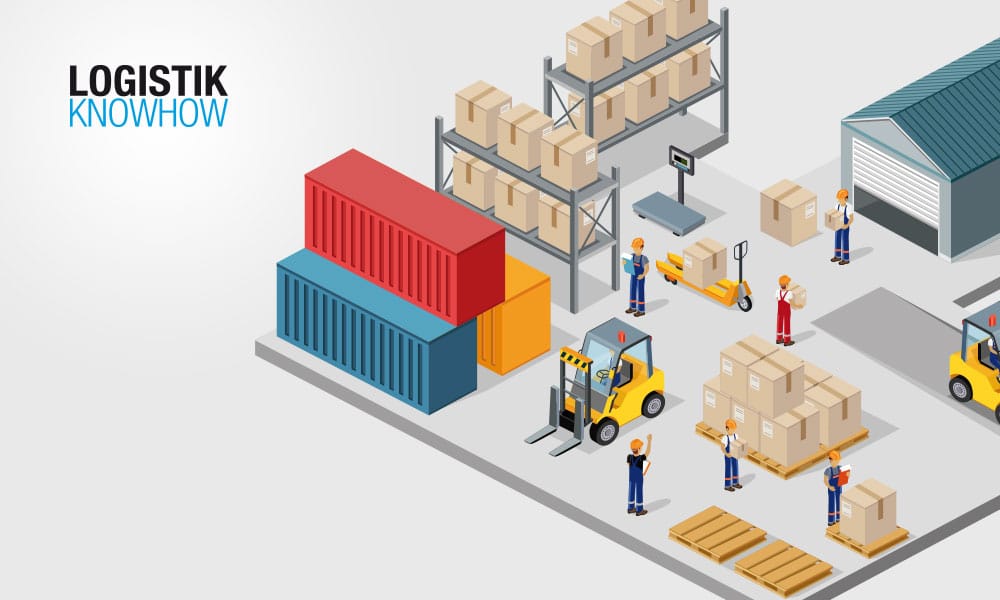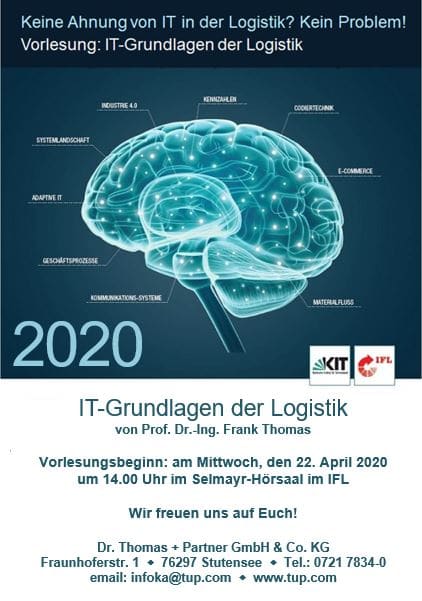
Leading edge
We are committed to continuous research and development
Reached the highest level of automation? Achieved the highest possible throughput? In short: your supply chain management is running smoothly. Are you certain of that? Every optimization measure in logistics is geared towards reducing cost, but they have to be identified first. That’s why we are constantly researching new ways to make our products even more effective, individual and stable: All in close cooperation with both industry and educational institutions. Our goal is to be and remain a driver of innovation. To achieve this, we rely not only on our pronounced spirit of research, including active university teaching but also on our involvement in the VDI/VDMA working groups, to continually develop new and state-of-the-art solutions.
The constant development of our adaptive software is our competitive edge. This keeps our warehouse solutions state-of-the-art – and one step ahead.
Our development approach
Adaptive software
You will not get run-of-the-mill solutions from us. After all, your distribution centre is unique and your specific structures and processes require specific solutions and approaches.
For this reason, all our solutions are based on the adaptive software model. This means: combinable software modules that give you the freedom to adapt all IT processes to your individual needs. On a standard platform with basic services, only the IT modules that are specifically needed for your requirements are added. If you want to expand your system in the years ahead, the necessary components can simply be added.
Your advantages:
- You acquire only what you need at the current time
- You save costs and implementation time
- The system can be adapted to the economic development of your company at any time
- No superfluous functions and no unnecessary system loads
- The update capability is retained


logistikknowhow.com
The knowledge platform for all matters relating to logistics and intralogistics
Our aim is to collect knowhow on all aspects of logistics where it is generated. Especially in research, there is often no interface to the business world through which current developments can be made accessible. Logistik KNOWHOW is the interface where institutes and companies can present their findings in an accessible Wiki format.
Our university and research commitment
Lecture contents 2020
Contents are updated during the lectures and are at the moment only available in German
- Agenda
- Kapitel 1: Systemarchitektur für Intralogistik-Lösungen (SAIL) / Modularisierung von Förderanlagen
- Kapitel 2: Gestaltung und Einsatz innovativer Material Flow Control Systeme
- Kapitel 3: Warenidentifikation – Anwendung in der Logistik
- Kapitel 4: Datenkommunikation in der Intralogistik
- Kapitel 5: Transparenz und Vernetzung der Geschäftsprozesse
- Kapitel 6: Software follows function – Softwareentwicklung nach industriellen Maßstäben
- Kapitel 7: Neue Ansätze zum Generieren von Innovationen
Script for the lecture
Active in research and education
Since 1976, Prof. Dr.-Ing. Frank Thomas has been involved in the university education of students of the Karlsruher Institut für Technologie. This year again, the lecture “IT-Basics of Logistics” at the Institute of Materials Handling and Logistics Systems (IFL) is under his direction. He personally conveys many topics, special areas are covered by colleagues and specialists.
The aim of this unit is to provide a comprehensive insight into the world of intralogistics and to focus on the state-of-the-art technology. Thanks to his many years of experience in the industry, Prof. Dr. Thomas can draw on a large pool of expertise, which enables him to provide a practical and versatile education.
Professor Dr. Thomas also supervises bachelor, master and diploma theses.
Important: A digital insight into the world of logistics is offered by the in-house portal Logistik KNOWHOWHOW. Topics such as inventory management, key figures, coding technology and material flow and transport are covered there.
when and where?
Lecture "IT-Basics of Logistics"
Start of lectures: Summer term 2020, start on Wednesday, April 22nd, 14:00 h
Event: IT basics of logistics
Lecturer: Prof. Dr.-Ing. Frank Thomas
SWS: 2
Credits 4
Location: Via the meeting tool Zoom, meeting address: https://kit-lecture.zoom.us/j/91619933545 or -ID 916 1993 3545
Date:: Wednesday afternoon, 14:00-15:30 or 14:00-16:15
See also the contents (German/English) and schedule.
We are looking forward to see you.
Main topics of the lecture
The goal of a new system architecture for MFC systems is to make new standardized function modules available for reuse.
The most important task of the MFCS is to assign transport orders to materials handling systems in such a way that the facility is optimally utilized and the logistic processes are performed on schedule.
Along the business processes, coded information is the link between the information flow and the material flow and contributes to error prevention in the communication between human and machine.
An information describes the content of a message that is of value to the recipient address. The recipient address can be either a human or a machine.
If the business processes from goods receipt to goods issue are adapted with reusable modules, then new opportunities become visible. Against this background, it seems appropriate to consider how an innovative software architecture can provide a reusable framework based on the modular principle. Therefore: Software follows function. In the planning phase, all project requirements must be documented and signed jointly by an interdisciplinary team of logistics planners, the customer (user) and the implementation manager (IL) to ensure the project’s success.
The development of object-oriented software technology achieved today and the increasing permeation of industrial software production with this method makes it possible to create system designs that already offer the opportunities – both for a high degree of reuse and for easier adaptability – in their facilities. In software development, object-oriented methods are used to improve productivity, maintainability and software quality. An important aspect of object orientation is that the objects used should primarily represent the real world.
Digital change is an ongoing process. The didactic approach we follow in this chapter alternates between the discussion of theoretical possibilities for the use of OR and AI, and discussions on how these applications can be implemented successfully in logistics.



